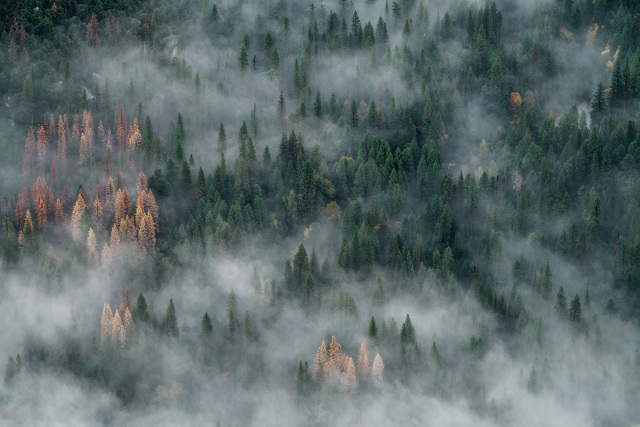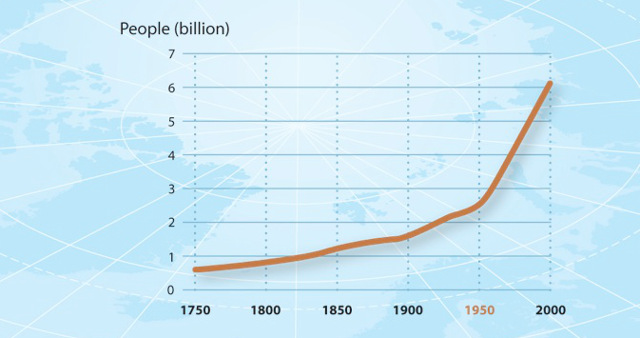
I recently started reading Tom Friedman’s book Thank You for Being Late. He lays out a timeline of technological accelerations (like AI and the growth of high speed bandwidth globally) that I thought would be good information for my podcast.
Mr. Friedman devoted a chapter to climate change in the book and paints a fairly horrific picture that got me thinking about the climate, especially in the United State’s current political situation.
The Earth is 4.5 billion years old. For the vast majority of the planet’s existence, the climate was not be hospitable for humans (the first billion years our planet couldn’t support the simplest life).
Human beings showed up 200,000 years ago. Civilization as we know it started around 6,000 years ago. An interesting fact about this timeline is that the planet shifted into the Holocene epoch around 11,000 years ago.
First what is an epoch?
In geochronology, an epoch is a subdivision of the geologic timescale that is longer than an age and shorter than a period. Rock layers deposited during an epoch are called a series.
Basically geologists study layers of rock to determine different changes in the chemical composition of the earth at different times (air, water, etc). Humans developed functional society during the Holocene epoch:
The Holocene also encompasses the growth and impacts of the human species worldwide, including all its written history, development of major civilizations, and overall significant transition toward urban living in the present.
Do you think the Holocene being a climate friendly period to human life and the proliferation of civilization is a coincidence? Earth’s current temperatures haven’t been this hot since the Eemian period 120,000 years ago (sea levels were 20-30 ft higher).
Everything was fairly balanced until the last 200 years. It seems humans have created so much concrete, chemicals, and unnatural materials like plastics that the planet is literally covered in a new layer of man-made dirt that is starting to be called the Anthropocene epoch.
This is exciting for geologists but will probably be bad for everybody else.
The industrial age is the origin point to this story. We figured out how to make more: more food, more materials for housing, better clothing, better medicine. Because there was abundance, there was more people.

The population doubled in the last 50 years. The UN is projecting that there will be almost 10 billion people on the planet by 2050.
This growth is being driven by the obvious countries like India and China, but more than 50% of that growth is expected by African countries like Nigeria. The population of the African continent could reach 4.2 billion by 2100.
More people are consuming more of everything (food and materials), which is causing even more impact to the environment. More production, more cows, more fishing means more carbon dioxide in the air and water and (most likely) consuming more trees.
Speaking of plant life, the use of pesticides and fertilizer has leached so many chemicals into the water tables that existing plants are not performing as well as they did at consuming carbon dioxide and there are less of them around.
The increase in green house gases is leading the ice caps to melt. Less ice at the caps mean less reflection of the sun’s rays which leads to more ice melting and the overall water temperature to heat up. This totally messes up ocean currents and causes insane weather patterns and super-storms.
The ice is also releasing even more CO2 gas (that was trapped during pre-human periods) and is increasing the acidity of the ocean which is impacting coral reef and fish populations.
So what does it all mean? Take the most extreme scenario off the table (all the ice melts), just a few feet causes major geo-political problems. Rising water means less coasts which forces huge groups of people to relocate. A continent like Africa which is already resource constrained, in a seemingly constant state of political unrest, and is experiencing a population boom… it is a recipe for disaster.
The climate problem is a political issue. A distracted and quarreling world population will not be in a position to address the environmental problems to ensure future generations can thrive.
Longing for the return of coal mines instead of investing in renewable resources is troubling (since it is becoming cheaper to produce nationally). But solar and wind aren’t going to get the job done in the short term which is why there needs to be investments in nuclear or molten salt reactors.
The global population has to figure out how to get CO2 out of the air and water ASAP. This is problematic considering that fossil fuels account for 87% of China’s energy consumption. Even though China is being praised for their investment in renewables, they are still going to burn a massive amount of coal (about 4 billion tons vs. 1 billion in the US) to keep growing economically.
Why am I taking the time to write a 1000 words on the topic? This entire situation scares me. My wife and I probably won’t live to see the most problematic aspects of climate change, but my son and his children will.
I don’t understand how politicians can see what is happening in Greenland, at the polar caps, and observe the extreme weather we have experience the last decade and deny there is a problem. Humans have literally changed the world over the last 200 years in the worst possible context.
Forget the two-party system, they are all responsible for this situation. This “kick the can down the road” mentality is a death sentence for future generations and will undoubtedly become the ignition point for future global warfare (what happens when we run out of fresh water?).
We have to elect people who acknowledge there is a problem and actually have a plan to start dealing with it.
Besides elections, here are some other ways to address climate change as an individual:
- Get informed via GreenPeace
- Make simple changes in your home that consume less energy
- Use renewable sources of energy when possible
- Don’t upgrade your phone as often and eat less meat (don’t punch me in the face on those last two)
Update (1/20/2017): It hasn’t been 8 hours since Trump assumed office and the official White House website has dropped any mention of climate change.
Photo: John Towner
